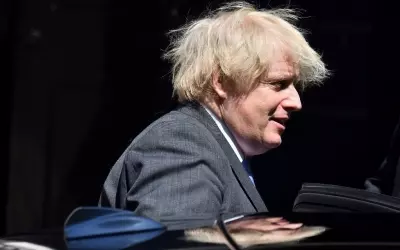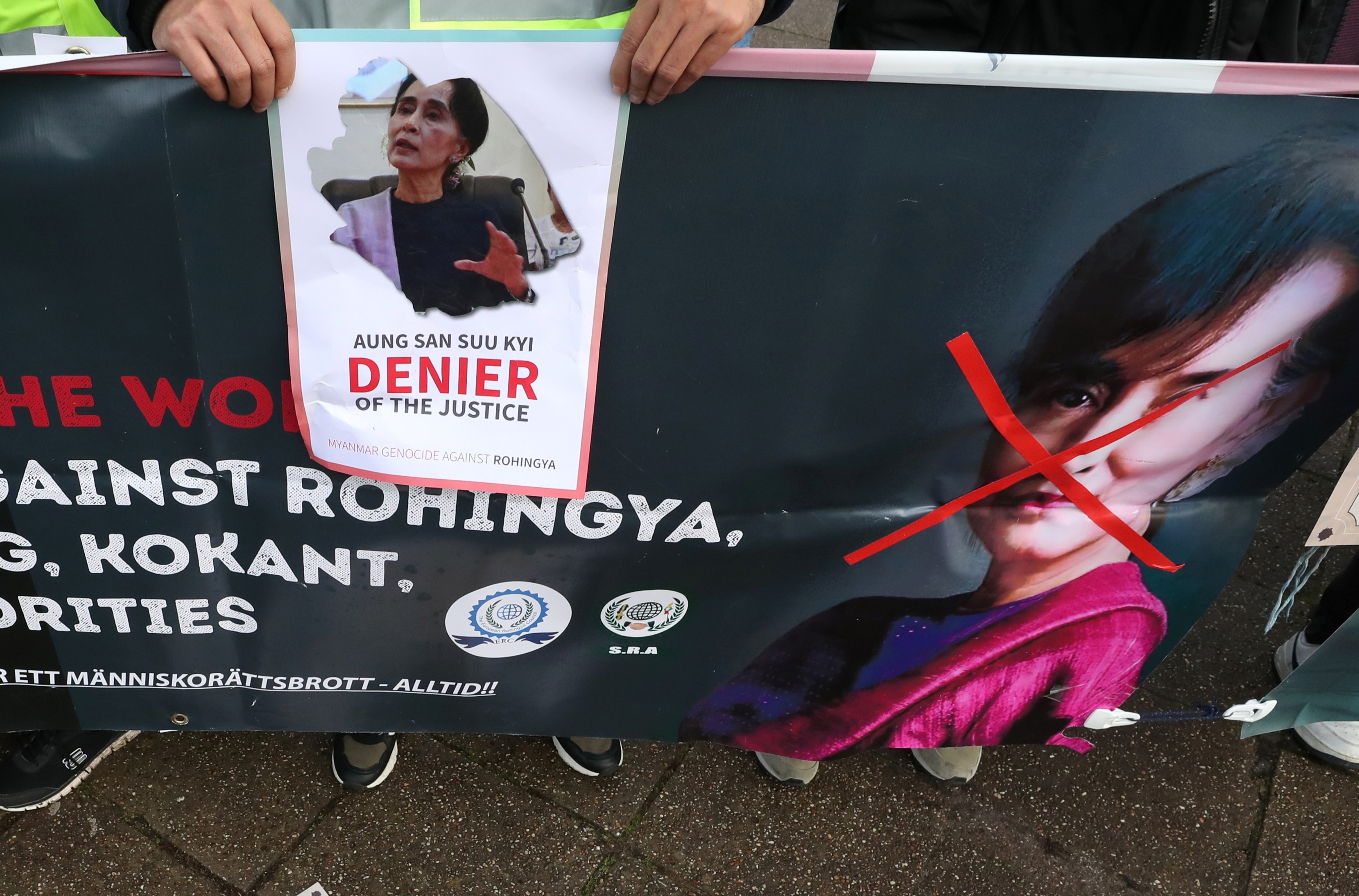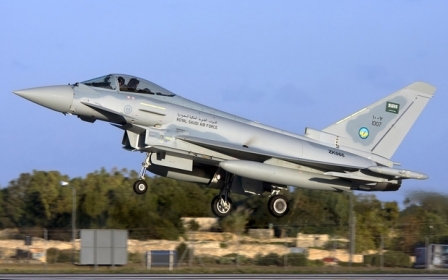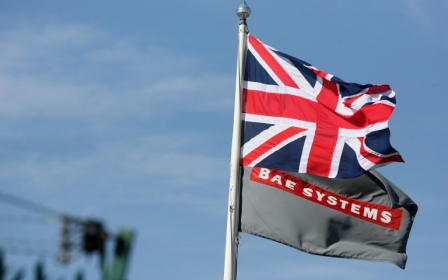UK sanctions against Saudi Arabia and Myanmar are an exercise in saving face
When Boris Johnson was British foreign secretary, for two years, he showed no genuine interest in defending human rights. Quite the opposite.
Two human rights calamities took place on his watch and he did not lift a finger to stop either of them. The first was the humanitarian disaster in Yemen, where more than 100,000 are thought to have died.
Johnson did nothing to stop the fighting. Instead, he fuelled it.
A moral abomination
It can never be forgotten that throughout his time at the Foreign Office, Britain continued to supply arms to Saudi Arabia, the main instigator of the war.
New MEE newsletter: Jerusalem Dispatch
Sign up to get the latest insights and analysis on Israel-Palestine, alongside Turkey Unpacked and other MEE newsletters
The second great calamity was the genocide of Rohingya Muslims in Myanmar. Here Johnson’s conduct was a moral abomination. His junior Foreign Office minister Mark Field defended the regime in Myanmar while the killings were going on.
In a shameful speech to the Commons in September 2017, Field castigated the Rohingya for provoking the violence. As for sanctions on the generals who had ordered the massacres, there were none.
Johnson’s behaviour was especially culpable because throughout this period the UK was the penholder at the United Nations for both Myanmar and Yemen. This gave Britain a special responsibility – and a unique opportunity - to bring the violence to an end.
Johnson did the opposite.
Worst of all, Johnson ensured that Britain actively blocked European Union efforts to establish an independent international inquiry into Saudi war crimes in Yemen.
Too little, too late
So we should regard this week’s announcement by Foreign Secretary Dominic Raab that Britain is to impose a formidable new sanctions regime with scepticism. On Monday, Raab, who was appointed foreign secretary when Johnson became prime minister in July last year, announced new sanctions on human rights abusers.
The UK was in a position to mitigate if not avert genocide in Myanmar. To slap sanctions on two generals years later feels like an exercise in saving face
About time too.
Forty-nine individuals and organisations were sanctioned, the first in a new so-called "global human rights sanctions regime". They included 25 Russian nationals involved in the death of Sergei Magnitsky, an auditor who uncovered widespread Russian corruption.
Also sanctioned were 20 Saudi nationals involved in the death of journalist Jamal Khashoggi.
Two of the high-ranking Myanmar military generals involved in the Rohingya genocide also received sanctions.
As did two organisations involved in what the Foreign Office describes as "the forced labour, torture and murder that takes place in North Korea’s gulags."
"If you’re a kleptocrat or an organised criminal," said Raab, “you will not be able to launder your blood money in this country."
Strong language, and the list is, in so far as it goes, welcome.
It is only right that all of the above are punished and condemned by the international community. But this is far too little and far too late. The UK was in a position to mitigate if not avert genocide in Myanmar. To slap sanctions on two generals years later feels like an exercise in saving face.
A loyal ally
The most eye-catching sanctions are those towards Saudi Arabia. The list includes former intelligence chief Ahmed al-Asiri and Saud al-Qahtani, a former adviser to Crown Prince Mohammed bin Salman. Both men face trial in their absence for allegedly ordering Khashoggi’s killing in Turkey.
Britain has done the minimum necessary to claim to be concerned about the murder of Khashoggi, without upsetting Mohammed bin Salman
For decades, Britain has been Saudi Arabia’s most adhesive and loyal ally. Previous arms sales to the kingdom supported more than ten thousand jobs in the UK. Saudi Arabia remains a key strategic ally in the Middle East and, according to the British government, has helped UK security forces thwart terrorist attacks at home.
In return, Britain turned a blind eye to many of the atrocities committed by Saudi Arabia.
The Guardian reported that Britain had provided the kingdom with military exports worth £10.3bn (over $12.9bn) between 2008 and 2018. Channel 4 Dispatches revealed in detail how equipment and technicians from British arms company BAE Systems were involved in Saudi air strikes in Yemen.
Belated sanctions
Just over a year ago, the Court of Appeal banned arms exports to Saudi Arabia because ministers had not properly assessed the risk of civilian casualties. However, on Tuesday, the day after British sanctions were announced, International Trade Secretary Liz Truss said arms sales to Saudi Arabia would restart.
In her statement she made the astonishing claim that an official review concluded that the air strikes in Yemen which breached humanitarian law were "isolated incidents".
So the day after the UK launched a highly publicised new human rights regime, it announces resumed arms sales to a country responsible for what the United Nations calls the worst humanitarian crisis of the 21st century. Britain has done the minimum necessary to claim to be concerned about the murder of Khashoggi, without upsetting Mohammed bin Salman.
There are already a number of serious blots on Johnson’s record.
One of them has been his recent handling of the Covid-19 pandemic where he has made bad mistakes and proved negligent. As far as Britain’s international reputation is concerned, his worst legacy is Britain’s conduct in Yemen, where Britain insists on supplying arms to the Saudi regime.
Belated sanctions on international criminals are welcome – in so far as they go. But they should not be allowed to draw attention away from Britain's complicity in the deaths of innocent civilians in Yemen.
The views expressed in this article belong to the author and do not necessarily reflect the editorial policy of Middle East Eye.
Middle East Eye delivers independent and unrivalled coverage and analysis of the Middle East, North Africa and beyond. To learn more about republishing this content and the associated fees, please fill out this form. More about MEE can be found here.







